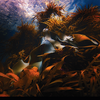
A beautiful garden in the sea
Deep below the waves, photographer Ian Wallace discovers a beautiful world of seaweed gardens that few people get to see, writes ABC Science. See his amazing images here.



Deep below the waves, photographer Ian Wallace discovers a beautiful world of seaweed gardens that few people get to see, writes ABC Science. See his amazing images here.
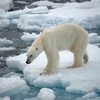
For Arctic marine mammals, the future is especially uncertain. Loss of sea ice and warming temperatures are shifting already fragile Northern ecosystems, writes Science Daily. The precarious state of those mammals is underscored in a multinational study led by a University of Washington scientist, published this week in Conservation Biology, assessing the status of all circumpolar species and subpopulations of Arctic marine mammals, including seals, whales and polar bears. …

Beachcombers and water babies have been asked to help researchers design a marine citizen scientist project, writes the Moruya Examiner. A national survey was launched to improve how people power is used in coastal science - read about it here.

Local, lived experiences add value to the science documenting changes in our marine environments, says researcher Gretta Pecl, supporting better decisions for the future of our fisheries. Read about Dr Pecl's research, life, and Redmap on the FRDC website.
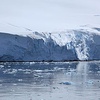
A recent study indicated the Totten Glacier in East Antarctica is on the tipping point of collapse as warm ocean water gets underneath the massive ice sheet. Read the full story in the Washington Post.

A RARE reptilian visitor has turned up on Tasmanian shores after a marathon swim from warmer waters, writes The Mercury. Read the full story about the yellow bellied sea snake here.
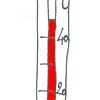
Want to know more about climate change but not sure where to start looking for info? Then this easy-to-read booklet (by the Australian Academy of Science) answers many questions surrounding climate change in Australia. Get some answers here!
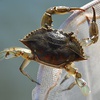
Scientists have observed the Atlantic (or Chesapeake) blue crab, a commercially important species, moving north of its native range into the Gulf of Maine, writes Science Daily. Read the full story here.
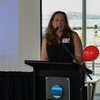
Through her successful projects Redmap (www.redmap.org.au), her latest Australian Research Council (ARC) Future Fellow project, and her participation in several other international projects as part of a 'Global Network of Marine Hotspots', Gretta's research is making a real difference to our understanding of the impacts of climate change on marine ecosystems in Tasmania and other 'hotspots' around the world. Read more about Dr Pecl on the University of Tasmania website.
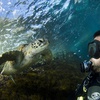
A new survey gauges the public's willingness to volunteer for marine science. The Marine Exchanges Survey is an Australian-first and aims to harness the power of ‘citizen science’. Observations from ocean users and beachgoers have enormous potential to increase knowledge about marine species along Australia’s coastal regions.